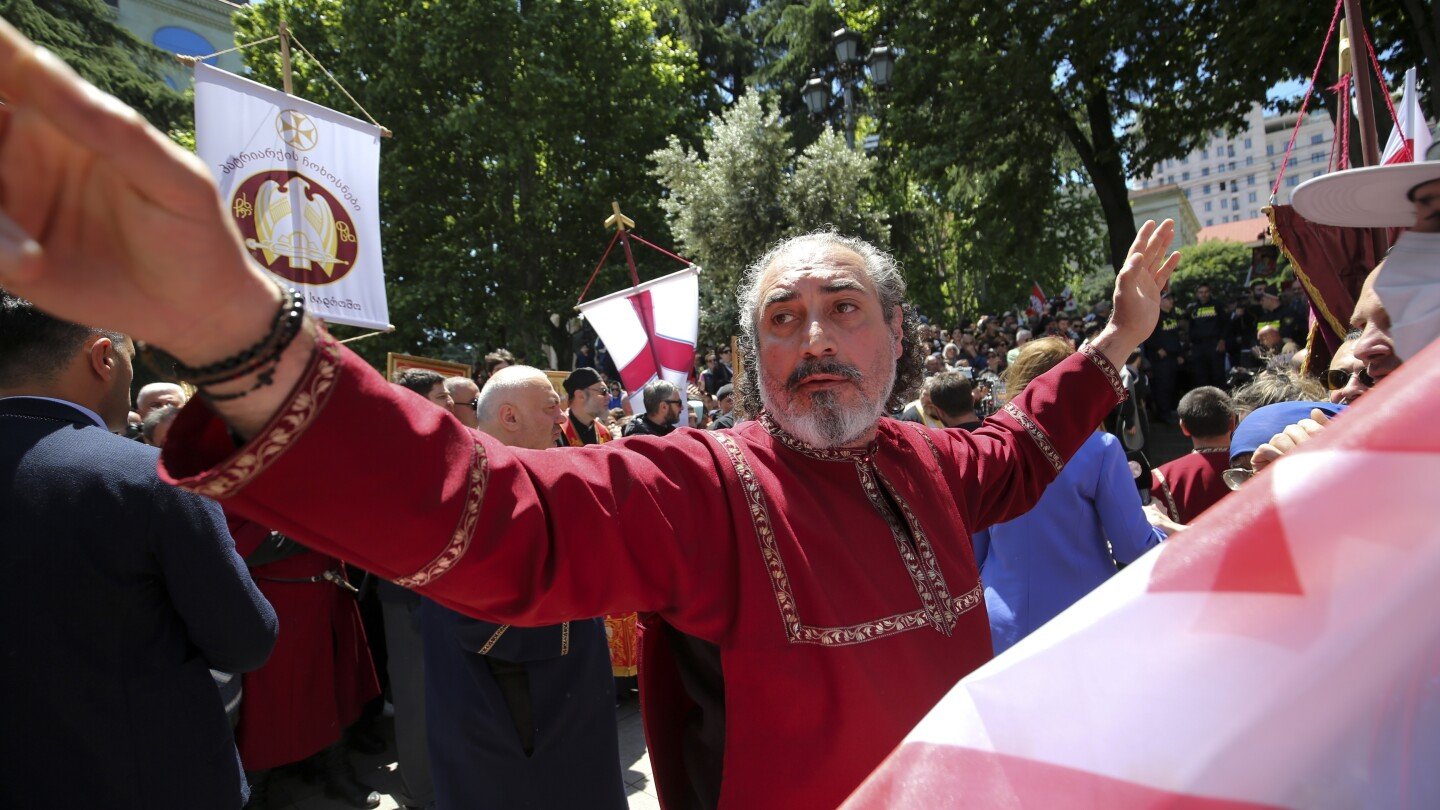- cross-posted to:
- worldnews@lemmit.online
- cross-posted to:
- worldnews@lemmit.online
The speaker of the Georgian parliament signed into a law Thursday a bill that severely curtails LGBTQ+ rights in the country and mirrors legislation adopted in neighboring Russia.
Shalva Papuashvili, the parliament speaker, said on social media that the legislation does “not reflect current, temporary, changing ideas and ideologies, but is based on common sense, historical experience and centuries-old Christian, Georgian and European values.”
Georgian President Salome Zourabichvili had refused to sign the bill and returned it to parliament on Wednesday. It was introduced by the governing Georgian Dream party and approved by lawmakers last month.
The bill includes bans on same-sex marriages, adoptions by same-sex couples and public endorsement and depictions of LGBTQ+ relations and people in the media. It also bans gender-affirming care and changing gender designations in official documents.



You’re probably thinking of this like the US, which has a presidential system, where the president has a veto and Congress can override.
Georgia has a parliamentary system, and typically there – don’t know about Georgia in particular – the president, if one exists, has a more symbolic role. Like, maybe he’s supposed to formally authorize legislation, but doesn’t really have a veto.
EDIT: In the UK, the monarch – the head of state in the UK, like the president in a parliamentary system – sometimes has to do something, but on the “advice” of the elected government, which in practice means that in 2024, they don’t really have the option to not do it.
https://www.theguardian.com/uk-news/2021/feb/07/how-queens-consent-raises-questions-over-uk-democracy